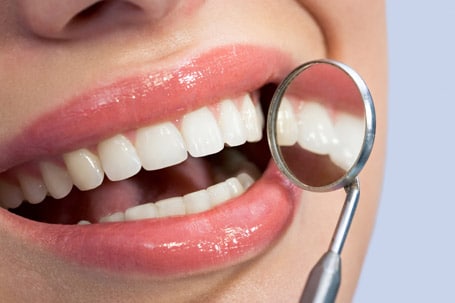Disorders of the Temporomandibular Joint (TMJ)
On each side of your jaw, just below your ears are your temporomandibular joints (a.k.a. TMJ). The TMJ connects your lower jaw to your skull. Most are surprised to learn that TMJs are among the more complex joints in the body. The temporomandibular joints are extremely important for proper chewing, swallowing, and talking. When the structures (muscles, ligaments, disk, jaw bone, temporal bone) of the TMJ are not aligned and they don’t move smoothly together, it is called Temporomandibular Joint Disorder (TMD) and several problems can develop.

What causes Disorders of the TMJ?
In many cases, the actual cause is not entirely clear. Often, excessive pressure or strain on the jaw joints and the muscles that control chewing, swallowing, and speech is the main cause of TMJ disorders. This can result from bruxism, a.k.a. teeth grinding.
Bruxism is the involuntary, habitual clenching or grinding of the teeth, usually while one is asleep or completely unaware of the action. Too much stress is a major cause of bruxism. Certain personalities seem to grind their teeth more than others. Structural abnormalities or direct trauma to the jaw, the head, or the neck may also cause TMD. Arthritis can also lead to disorders of the TMJ.
What are the Symptoms of TMD?
You may have a disorder of the TMJ if you experience:
- frequent headaches
- discomfort or soreness over your TMJ, especially in the morning or late afternoon
- pain behind the eyes, in the face, shoulder, neck, and/or back
- ringing in the ears or constant ear pressure
- clicking or popping of the jaw
- locking of the jaw in the open position
- restricted mouth motions
- noticeable clenching or grinding of the teeth by a bed partner
- teeth sensitivity not caused by something else
- a change in your bite
TMD symptoms can overlap and look like other medical conditions or problems so be sure to discuss your symptoms with a dentist or medical provider.
How are Disorders of the TMJ Treated?
Certain lifestyle modifications can reduce bruxism and the symptoms of TMD. These mostly center around stress management to reduce the involuntary grinding but posture training, physical therapy, and diet changes to rest the jaw may also help.
When lifestyle changes or other therapies fail to significantly improve TMJ pain and symptoms, an oral appliance provided by a qualified dentist can reduce the problems caused by disorders of the TMJ.
Dr. David Luck at Luck Dental Care in Cypress, TX is proud to offer this safe and effective treatment for TMJ disorders.
How do Oral Appliances for TMJ Disorders Work?
Oral appliances for TMJ disorders fit over the teeth similar to a mouthguard that athletes wear. The goal of oral appliances is to reduce the wearing down of the teeth, teeth sensitivity, pain, muscle soreness, and instability that disorders of the TMJ often cause.
Oral appliances for TMJ disorders can be worn day or night and also discourage daytime behaviors many patients don’t realize they’re doing, such as clenching their teeth when stressed, or even biting their nails or cuticles.
If you suffer from any of the symptoms that TMJ disorders cause, contact Luck Dental Care, your reliable dentist in Cypress, TX, today for a complete evaluation by Dr. Luck and his team. Our experienced professionals are here to address your TMJ concerns and provide effective solutions to improve your oral health and comfort.
See more dental services
Your Trusted Dentist in Cypress, TX
Book Your Dental Appointment
Please request your new patient appointment below

